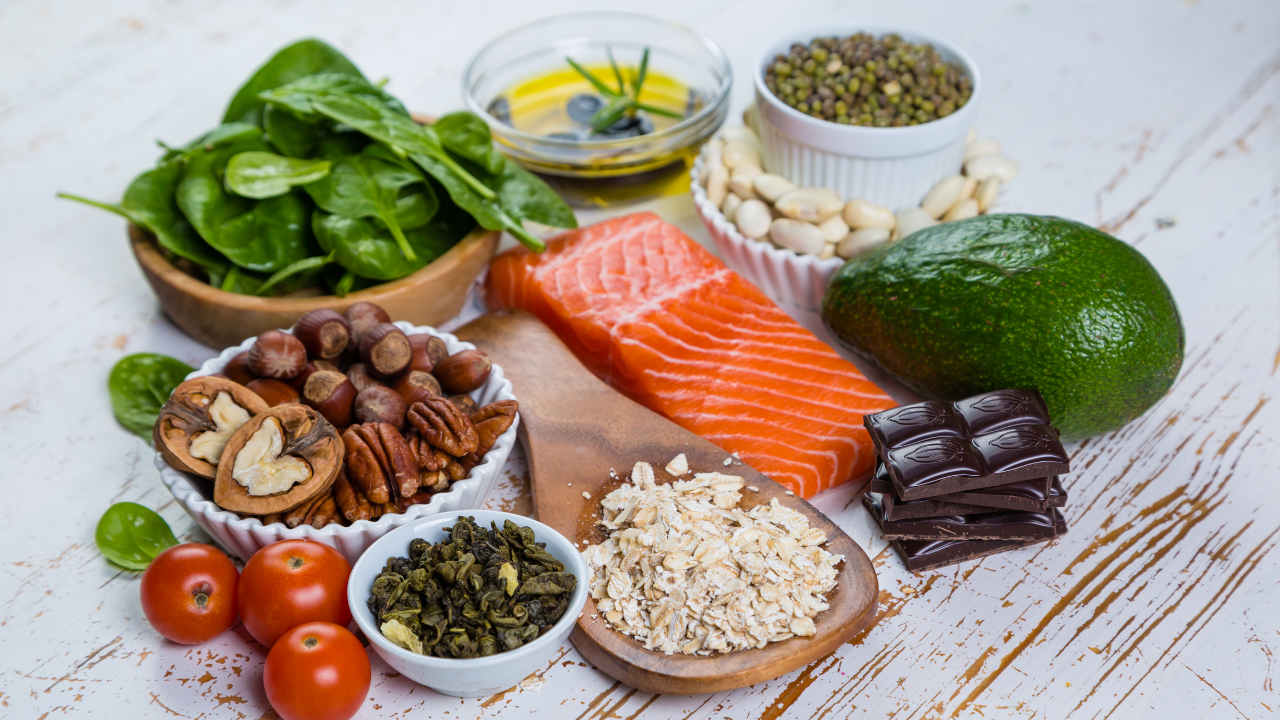
Busting Nutritional Myths: Separating Fact from Fiction
In an age where information is just a click away, it's easy to fall victim to the myriad of nutritional myths circulating on the internet. From miracle diets to food phobias, these myths can not only mislead but also negatively impact your health. Let’s debunk some of the most common nutritional myths and set the record straight.
For many years, carbohydrates have gotten a bad reputation due to various diet trends. People often hear that carbs are the main cause of weight gain and many health problems. But it's important to know that not all carbs are the same. Whole grains, fruits, and vegetables are packed with essential nutrients and fiber, which are vital for a balanced diet and providing long-lasting energy. The real culprits to watch out for are refined carbs and sugars. By choosing complex carbohydrates, you can actually support weight management and improve your overall health.
Carbohydrates are one of the body's main sources of energy. They come in two main types: simple and complex. Simple carbs, like those found in sugary snacks and drinks, are quickly broken down by the body, causing a spike in blood sugar levels. This can lead to energy crashes and increased hunger. On the other hand, complex carbs are found in whole grains, fruits, and vegetables. These are broken down more slowly, providing sustained energy and helping you feel fuller for longer.
Whole Grains: Foods like brown rice, quinoa, and whole wheat bread are rich in fiber, vitamins, and minerals. Fiber is particularly important because it aids in digestion, helps control blood sugar levels, and can lower cholesterol. Including whole grains in your diet can reduce the risk of heart disease and help with weight management.
Fruits: Fresh fruits are loaded with vitamins, minerals, and antioxidants. They are also a great source of natural sugars and fiber, which help to regulate your body's energy levels. Eating a variety of fruits can boost your immune system and improve your overall health.
Vegetables: Vegetables are low in calories but high in vitamins, minerals, and fiber. They are essential for maintaining a healthy weight and can reduce the risk of chronic diseases. Leafy greens, like spinach and kale, are especially nutrient-dense and can support heart health and digestion.
Refined carbs, such as white bread, pastries, and sugary cereals, have been stripped of most of their nutrients and fiber. Consuming these can lead to quick spikes in blood sugar and insulin levels, followed by rapid drops. This cycle can increase hunger and cravings, making it harder to manage your weight. Over time, a diet high in refined carbs can lead to obesity, type 2 diabetes, and other health issues.
Switching to complex carbohydrates can make a significant difference in your health. Here are some tips:
By understanding the difference between refined and complex carbohydrates, you can make better food choices that support your weight management goals and overall health. Remember, not all carbs are bad, and embracing the right kinds can lead to a healthier, more balanced diet.
In the late 20th century, the fat-free trend took the world by storm, convincing many that all fats were harmful to health. However, the truth is far from that misconception. Our bodies actually require fats for various essential functions, ranging from hormone production to the absorption of important nutrients. The key lies in choosing the right kinds of fats – the healthy ones.
Dietary fats come in different forms, and not all are created equal. Here's a breakdown:
Healthy Fats: These include monounsaturated and polyunsaturated fats, which are beneficial for heart health and overall well-being. Sources of healthy fats include avocados, nuts, seeds, and olive oil.
Unhealthy Fats: Saturated and trans fats are the ones to watch out for. These fats can raise cholesterol levels and increase the risk of heart disease. Saturated fats are commonly found in animal products like butter, cheese, and fatty meats, while trans fats are often found in processed foods like chips, cookies, and fried foods.
In conclusion, not all fats are bad for you. Healthy fats are essential for optimal health and should be included as part of a balanced diet. By choosing sources of healthy fats like avocados, nuts, seeds, and olive oil, and limiting intake of saturated and trans fats, you can support your overall well-being and reduce the risk of chronic diseases. Remember, it's all about balance and making informed choices when it comes to your dietary fat intake.
Skipping meals, particularly breakfast, is sometimes hailed as a shortcut to weight loss. But the reality is quite different. While it might seem like a way to cut calories, skipping meals can actually work against your weight loss goals and harm your overall health.
Eating regular, balanced meals is key to maintaining stable blood sugar levels, preventing cravings, and supporting overall health. Here's why:
Breakfast is often called the most important meal of the day, and for good reason. A healthy breakfast kickstarts your metabolism, provides you with energy to start your day, and sets a positive tone for your eating habits throughout the day.
When choosing breakfast foods, opt for options that are high in fiber, protein, and healthy fats to keep you feeling full and satisfied until your next meal. Some nutritious breakfast ideas include oatmeal topped with nuts and fruit, Greek yogurt with berries and granola, or avocado toast with a side of scrambled eggs.
Skipping meals, including breakfast, is not a sustainable or healthy way to lose weight. Instead, focus on eating regular, balanced meals to support your overall health and weight loss goals. By fueling your body with nutritious foods throughout the day, you'll feel more energized, satisfied, and better equipped to reach your health and wellness goals.
Detox diets and cleanses often market themselves as a quick fix for shedding pounds and purging your body of harmful toxins. While the allure of detoxifying may be tempting, the truth is that our bodies are already well-equipped with sophisticated systems designed to eliminate waste and toxins naturally.

Instead of resorting to restrictive detox diets, focus on adopting healthy lifestyle habits that support your body's natural detoxification processes:
While detox diets and cleanses may promise quick results, they are often not backed by scientific evidence and can pose risks to your health. Instead, focus on nourishing your body with whole foods, staying hydrated, exercising regularly, and getting adequate sleep to support your body's natural detoxification processes. By adopting these healthy lifestyle habits, you can promote long-term health and well-being without resorting to extreme measures.
The idea that eating late at night causes weight gain is a common misconception that has been perpetuated for years. While it's true that late-night snacking can contribute to weight gain, it's not necessarily the timing of the meal that's the culprit, but rather the type and quantity of food consumed.

If you find yourself hungry late at night, it's okay to have a small, balanced snack to satisfy your hunger without sabotaging your weight loss efforts. Here are some tips for making healthy late-night choices:
Eating late at night doesn't inherently cause weight gain, but making poor food choices during late-night snacking can contribute to excess calorie intake and potential weight gain over time. By focusing on nutrient-dense, portion-controlled snacks and listening to your body's hunger cues, you can enjoy late-night snacks without derailing your weight loss goals. Remember, it's not about when you eat, but what and how much you eat that truly matters for overall health and weight management.
Protein has long been hailed as the powerhouse nutrient for muscle repair and growth, and rightfully so. It plays a crucial role in building and repairing tissues, supporting immune function, and even regulating hormones. While protein shakes and supplements have become popular among fitness enthusiasts and athletes, the truth is that most people can easily meet their protein needs through a balanced diet alone.

While protein shakes and supplements can be convenient, they are not necessary for most people to meet their protein needs. Instead, focus on incorporating a variety of natural, whole food sources of protein into your diet. Here are some examples:
While most people can meet their protein needs through whole foods alone, there are certain situations where protein supplements may be beneficial. These include:
Protein is an essential nutrient for overall health and well-being, playing a vital role in muscle repair, satiety, and immune function. While protein shakes and supplements can be convenient, they are not necessary for most people to meet their protein needs. By focusing on a balanced diet that includes a variety of natural protein sources like lean meats, dairy, legumes, and whole grains, you can easily support your body's protein requirements and achieve your health and fitness goals.
The debate over organic versus conventionally grown foods has been ongoing for years, with many people believing that organic foods are inherently healthier due to their farming practices. While organic farming does offer benefits such as reduced synthetic pesticide use and a focus on soil health, the nutritional disparities between organic and conventionally grown produce are actually quite minimal.

When it comes to choosing between organic and conventionally grown foods, it ultimately comes down to personal preference, budget, and environmental considerations. While organic foods may offer certain benefits in terms of reduced pesticide exposure and environmental sustainability, they are not inherently superior to conventionally grown foods in terms of nutritional value.
While organic foods are often perceived as the healthier choice, the nutritional differences between organic and conventionally grown produce are minimal. Instead of fixating on whether a food is organic or conventional, focus on consuming a varied diet rich in fruits, vegetables, whole grains, and lean proteins. Washing produce thoroughly before consumption can help remove any pesticide residues, ensuring that you can enjoy a safe and nutritious diet regardless of how your food was grown.
Summary: The debate over organic versus conventionally grown foods continues to be a topic of discussion, with many believing that organic foods are inherently healthier due to their farming practices. While organic farming does offer benefits such as reduced synthetic pesticide use and a focus on soil health, studies have shown that the nutritional differences between organic and conventionally grown produce are minimal. Both types of produce contain essential nutrients, and consuming a varied diet rich in fruits, vegetables, whole grains, and lean proteins is far more important for overall health. Additionally, washing produce thoroughly can help remove any pesticide residues, ensuring safe consumption.
Disclaimer: The views and opinions expressed in this article are those of the author and do not necessarily reflect the official policy or position of DXB News Network. The information provided is for informational purposes only and should not be construed as medical advice or a substitute for professional medical expertise. Readers are advised to consult with a qualified healthcare professional before making any dietary changes or decisions regarding their health. DXB News Network does not endorse any specific dietary practices or products mentioned in this article.
#NutritionalMyths #HealthMyths #DietMyths #FactsNotFiction #WellnessJourney #HealthyLiving #DebunkingMyths #NutritionFacts #HealthyEating #MythBusters #FoodFacts #HealthTips #NutritionEducation #ScienceBasedNutrition #MythVsReality #breakingnews #worldnews #headlines #topstories #globalUpdate #dxbnewsnetwork #dxbnews #dxbdnn #dxbnewsnetworkdnn #bestnewschanneldubai #bestnewschannelUAE #bestnewschannelabudhabi #bestnewschannelajman #bestnewschannelofdubai #popularnewschanneldubai

Gene Hackman and wife Betsy Arakawa found dead in New Mexico home; daughter says he was in good health...Read More.

RTA expands Al Rowaiyah Truck Rest Stop, increasing capacity by 338% for safer roads...Read More.
 Meet Shaheer Niazi The Boy Who Broke Isaac Newton's Record at age 16
Meet Shaheer Niazi The Boy Who Broke Isaac Newton's Record at age 16
Breaking Isaac Newton's record at the tender age of 16 with his revolutionary research on electric h
 West Ham increase pressure on Leicester with 2-0 win
West Ham increase pressure on Leicester with 2-0 win
West Ham defeated struggling Leicester City 2-0 as Soucek scored on his 30th birthday, plus an own g
 MBRSC reveals launch details of Etihad-SAT, its first SAR satellite
MBRSC reveals launch details of Etihad-SAT, its first SAR satellite
MBRSC to launch Etihad-SAT, its first SAR satellite, in March 2025 via SpaceX Falcon 9
 Cleveland Clinic Abu Dhabi sees 35% rise in international patients in 2024
Cleveland Clinic Abu Dhabi sees 35% rise in international patients in 2024
The hospital saw more demand for heart, eye, nerve, and kidney care, with patients from Kuwait, Saud
 Michelle Trachtenberg, Buffy the Vampire Slayer Star, Passes Away
Michelle Trachtenberg, Buffy the Vampire Slayer Star, Passes Away
Michelle Trachtenberg, known for Buffy the Vampire Slayer and Gossip Girl, has passed away at 39
Gene Hackman's daughter speaks out on his health before death

Gene Hackman and wife Betsy Arakawa found dead in New Mexico home; daughter says he was in good health
RTA Expands Al Rowaiyah Truck Rest Stop, Increasing Capacity by 338%

RTA expands Al Rowaiyah Truck Rest Stop, increasing capacity by 338% for safer roads
33 Parks Opened in Mohamed Bin Zayed City by Municipalities & Transport Dept

Improved accessibility and facilities will be offered for People of Determination, ensuring everyone can enjoy the parks' various recreational options
Must-Have Packing List for Your Next Adventure

Maximize Your Journey with This Must-Have Packing List for Adventure
How Technology Is Changing the World of Sports

Explore how technology is transforming sports performance and fan engagement
Anger over Greece rail disaster grows as workers strike, protests expected

Two years after Greece's deadliest train crash, nationwide strikes and protests are held to mark the anniversary
Etihad Airways and Air Europa to Strengthen Strategic Partnership

Etihad Airways and Air Europa to enhance services with a strategic partnership
Top Sports and Athletes Making Headlines in 2025

Exciting sports moments and rising stars dominating 2025
Suicide blast at Taliban religious school in Khyber Pakhtunkhwa kills 5, injures dozens

A bomb blast at a pro-Taliban seminary mosque in northwestern Pakistan kills five and injures many, just before Ramzan
Manchester City Keeps Top Spot as World's Most Valuable Team

Manchester City stays top, with 5 English clubs in the top 10, per Transfermarkt
3001E, 30 Floor, Aspin Commercial Tower, Sheikh Zayed Road, Dubai, UAE
+971 52 602 2429
info@dxbnewsnetwork.com
© DNN. All Rights Reserved.